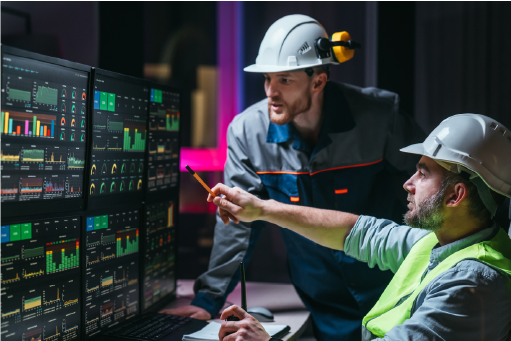If you’re thinking of starting a new career, there’s no better place than the automated buildings industry. It’s one of the best kept secrets in technology careers today. It helps when starting or growing any career, to have a good understanding of the intellectual tools you’ll need, so consider this list of essentials skills and knowledge for the building automation industry.
- Technical Knowledge: A solid understanding of building automation systems, including HVAC (Heating, Ventilation, and Air Conditioning), lighting controls, energy management systems, and integration protocols (e.g., BACnet, Modbus). This includes knowledge of hardware components, software applications, networking, and troubleshooting.
- Programming and Software Skills: Proficiency in programming languages commonly used in building automation, such as C++, Python, or Java. Familiarity with automation software platforms and tools for system configuration, programming, and diagnostics.
- Electrical and Controls Understanding: Knowledge of electrical systems and controls, including wiring, circuits, sensors, actuators, and controllers. Understanding of control logic and the ability to interpret electrical drawings and schematics.
- Problem-Solving and Troubleshooting: Strong problem-solving skills to diagnose and resolve technical issues in building automation systems. The ability to troubleshoot complex problems efficiently and effectively.
- Communication and Collaboration: Excellent communication skills to interact with clients, engineers, technicians, and other stakeholders. The ability to clearly convey technical concepts, provide support, and collaborate effectively within multidisciplinary teams.
- Project Management: Proficiency in project management principles, including planning, organizing, and executing building automation projects. This involves coordinating timelines, resources, and deliverables to ensure successful implementation and customer satisfaction.
- Industry Knowledge: Staying up to date with the latest trends, technologies, and regulations in the building automation industry. This includes knowledge of energy efficiency practices, sustainability, emerging standards, and industry-specific best practices.
- Continuous Learning: A commitment to continuous learning and professional development to keep pace with advancements in building automation systems and technologies. This can involve attending industry conferences, participating in training programs, and staying engaged with industry publications and forums.
- Customer Service Orientation: A customer-centric mindset with a focus on delivering high-quality service and meeting customer needs. This includes responsiveness, attentiveness to customer requirements, and the ability to provide effective solutions.
- Analytical and Data-Driven Approach: Proficiency in data analysis and interpretation to optimize building automation systems for energy efficiency, performance monitoring, and predictive maintenance. The ability to leverage data to identify opportunities for improvement and make informed decisions.
Developing and honing these skills can greatly contribute to success in the building automation industry, as they encompass both technical expertise and the interpersonal skills required to navigate complex projects and meet customer expectations. But just because these skills are important doesn’t mean you need to have mastered each now, or even know much about them. It just means you will likely encounter them in the future. If you feel confident in your dedication to learning, you’ll have few barriers to growing a successful career in the building automation industry.

